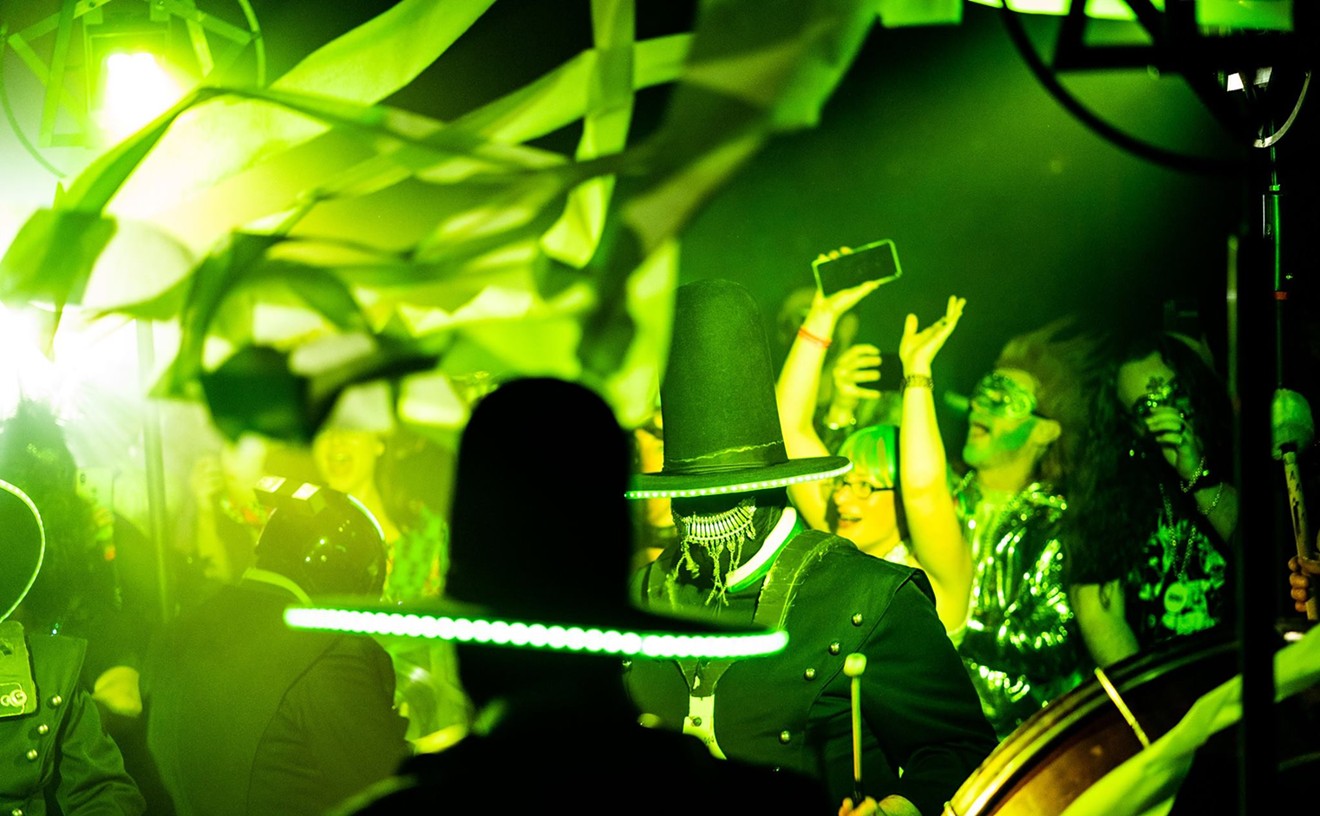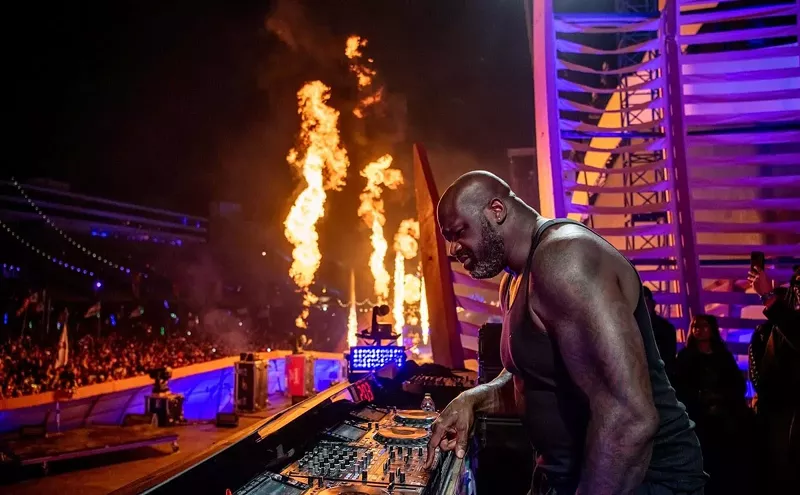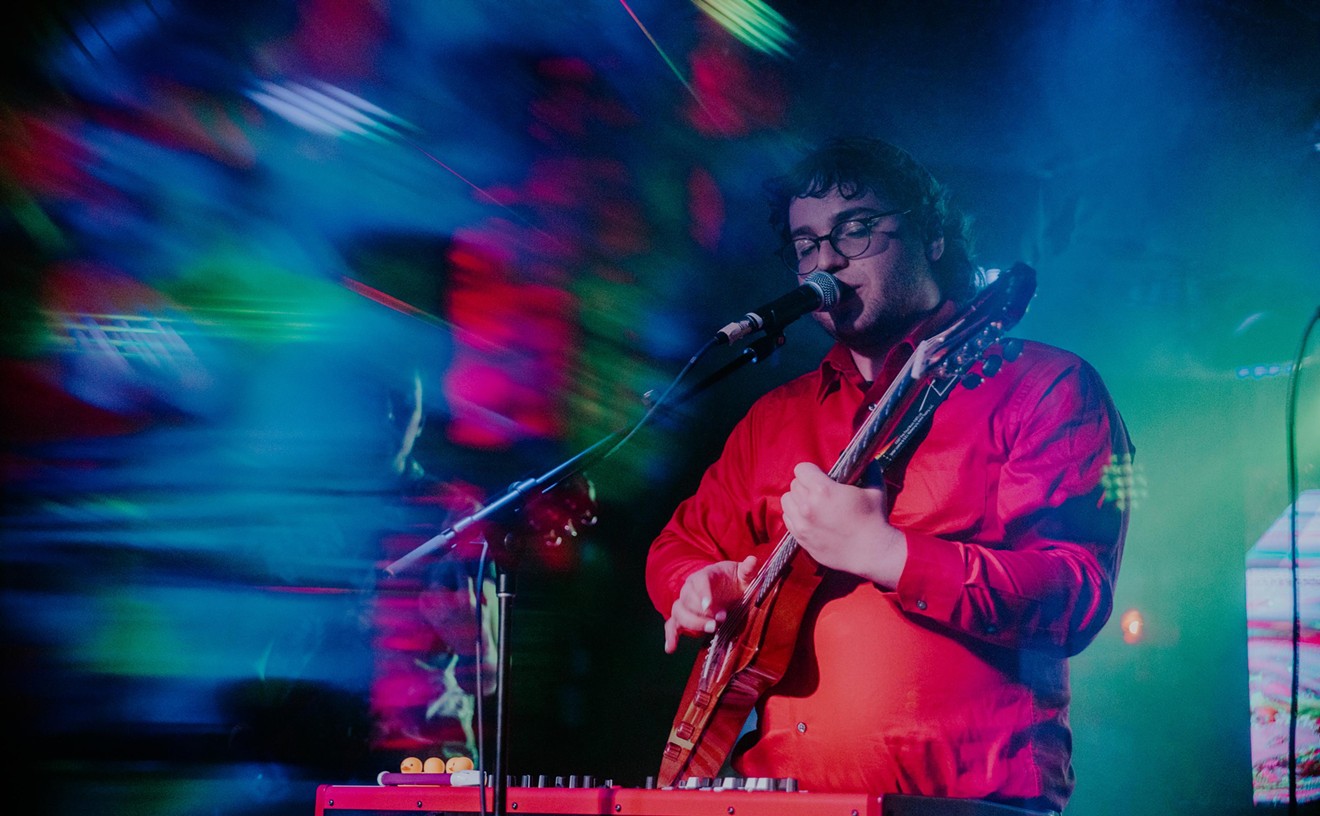In addition to fronting DeVotchKa, singer and guitarist Nick Urata has composed music for close to two dozen films over the past decade. But he’s never worked on a project as big as Paddington.He spent nearly three months in London composing music for the film, which stars Nicole Kidman and Downton Abbey’s Hugh Bonneville. He’d written something for a scene that he considered his favorite piece of music in the film, and he was excited to record it with a great orchestra. “At the end of the session, everybody is high-fiving and everything,” Urata remembers.
But when the director and producer saw the film with music, Urata recalls, they said, “There’s just this one thing that’s not working for us.”
Guess which composition they were referring to? Urata says it’s something everyone who writes music for movies learns: “Your favorite musical piece of the movie will almost always end up on the cutting-room floor.” With hardly any time left, Urata had to get back to the drawing board and replace the entire piece.
“I was almost in a trance: ‘I have to make this work,’” he says. “It’s almost like you tap into this vein. It’s one of those spaces as a writer that you kind of aspire to. Getting there might not be fun, but when it happens, it’s pretty inexplicable, really.
“I’m not trying to be all spiritual and spooky. It’s happened to me a few times, where I just cannot picture myself writing this thing, but I did somehow. I don’t remember doing it. I don’t remember thinking it, but there it is on the film.”
Urata says the strict deadlines of film composing can force you into a musical corner that you have to write yourself out of.
“When you’re sitting alone in a room trying to write a song, there’s a million ways you can go — but here you’re actually on a path that you have to be on, and you have to come up with something to get out of this,” he says. “It does make for some great musical ideas [because] you probably never would have been in this musical neighborhood. You find yourself there, and you wouldn’t be walking the streets if it wasn’t for this particular scene in a movie.”
Over the past decade, Urata has gotten to work on quite a few films, in part thanks to Kraft-Engel Management, which has been bringing him scores since he joined the company’s roster after a few DeVotchKa songs appeared in Little Miss Sunshine. The company also represents famed film composers Danny Elfman, Angelo Badalamenti, Mark Isham and Graeme Revell. One of the best pieces of advice that Urata has gotten from them: Check your ego at the door. You’re working with someone else’s vision.
“There are a lot of cooks in the kitchen, and six different people will have six different opinions of the same few notes,” Urata says. “So you have to learn how to navigate that. A lot of times, for the most part, it brings out the best in you, because the film needs what it needs and you’ve got to get it there. So if you’re not there, they’re going to let you know. Then all of a sudden you’re writing things that you never thought you could write before.”
And while Urata says he’s dealt with the stress of deadlines on previous films, the stakes were a bit higher for Paddington. There were so many more elements to contend with, including a much bigger staff and an immovable schedule.
“I mean, Jesus Christ could come down off the mountaintop and they would not postpone that release date,” says Urata. “It was like going from the minors to the major leagues without any spring training.”
His time in the big leagues continues with the movie Focus, which stars Will Smith and Margot Robbie and is slated to be released later this month. Urata got a chance to work on its score with writers and directors John Requa and Glenn Ficarra, who also hired him to work on 2009’s I Love You Phillip Morris and 2011’s Crazy, Stupid, Love.
Urata says he had to come up with a score for Focus based on what was happening in the story, which takes place in two of the coolest musical cities in the world: New Orleans and Buenos Aires.
“Like many of their films, [Focus] is kind of genre-bending,” Urata says. “It’s based on a love story and an emotional journey...so in that kind of way, whenever the film is kind of genre-bending, the music gets to jump around a lot — so that was really cool. At first we were thinking it would a New Orleans score, then an Argentinean score, and then we sort of realized that we wanted to move away from that, and it sort of became its own sort of thing.”
Long before Urata was scoring films and before DeVotchKa’s audience grew exponentially with the success of Little Miss Sunshine, the band was playing places like the now-defunct 15th Street Tavern. That was in the early 2000s.
“I had finally gotten this band off the ground, and everything was so new,” Urata says. “We were writing songs and performing live and having an idea and banging it out in the garage and playing in front of people two days later. It was probably one of the happiest times of my life, even though we were all broke and working totally shitty jobs. It made the music that much more vital.”
Even since the early days, DeVotchKa’s music has had a sweeping, cinematic quality to it, so writing film scores seems a natural fit for Urata. His work on movies has paid dividends for the band, as well: Sometimes things that end up not working for movies end up in some form with DeVotchKa. Urata says he’s lucky to have great bandmates he can work with: Tom Hagerman, Jeanie Schroder and Shawn King.
For the past two years, DeVotchKa has been working on a studio followup to 2011’s 100 Lovers (the band released a live album in 2012 with the Colorado Symphony). The world of working on film scores is quite different than that of working with DeVotchKa, where the process is slower and more deliberate.
“You don’t realize how much time you actually have until somebody takes it away from you,” Urata says. “Although [writing the Paddington score] was physically and mentally trying, it was a big positive. That adrenaline gets you out of bed every morning, very early, and it keeps you in the studio all day. It was a very driving creative force. I credit it [for] a lot of great music that’s done this way.”
After dealing with the deadlines of film work, Urata says, it’s been freeing not having someone breathe down his neck for the DeVotchKa album, and he’s been able to let each song develop the way it’s supposed to. The goal is to have the album wrapped up in the next few months, with a fall release.
In the meantime, DeVotchKa fans can hear Urata’s lush compositions at their local movie theater.
[
{
"name": "Air - MediumRectangle - Inline Content - Mobile Display Size",
"component": "12017618",
"insertPoint": "2",
"requiredCountToDisplay": "2"
},{
"name": "Editor Picks",
"component": "17242653",
"insertPoint": "4",
"requiredCountToDisplay": "1"
},{
"name": "Inline Links",
"component": "18838239",
"insertPoint": "8th",
"startingPoint": 8,
"requiredCountToDisplay": "7",
"maxInsertions": 25
},{
"name": "Air - MediumRectangle - Combo - Inline Content",
"component": "17261320",
"insertPoint": "8th",
"startingPoint": 8,
"requiredCountToDisplay": "7",
"maxInsertions": 25
},{
"name": "Inline Links",
"component": "18838239",
"insertPoint": "8th",
"startingPoint": 12,
"requiredCountToDisplay": "11",
"maxInsertions": 25
},{
"name": "Air - Leaderboard Tower - Combo - Inline Content",
"component": "17261321",
"insertPoint": "8th",
"startingPoint": 12,
"requiredCountToDisplay": "11",
"maxInsertions": 25
}
]











